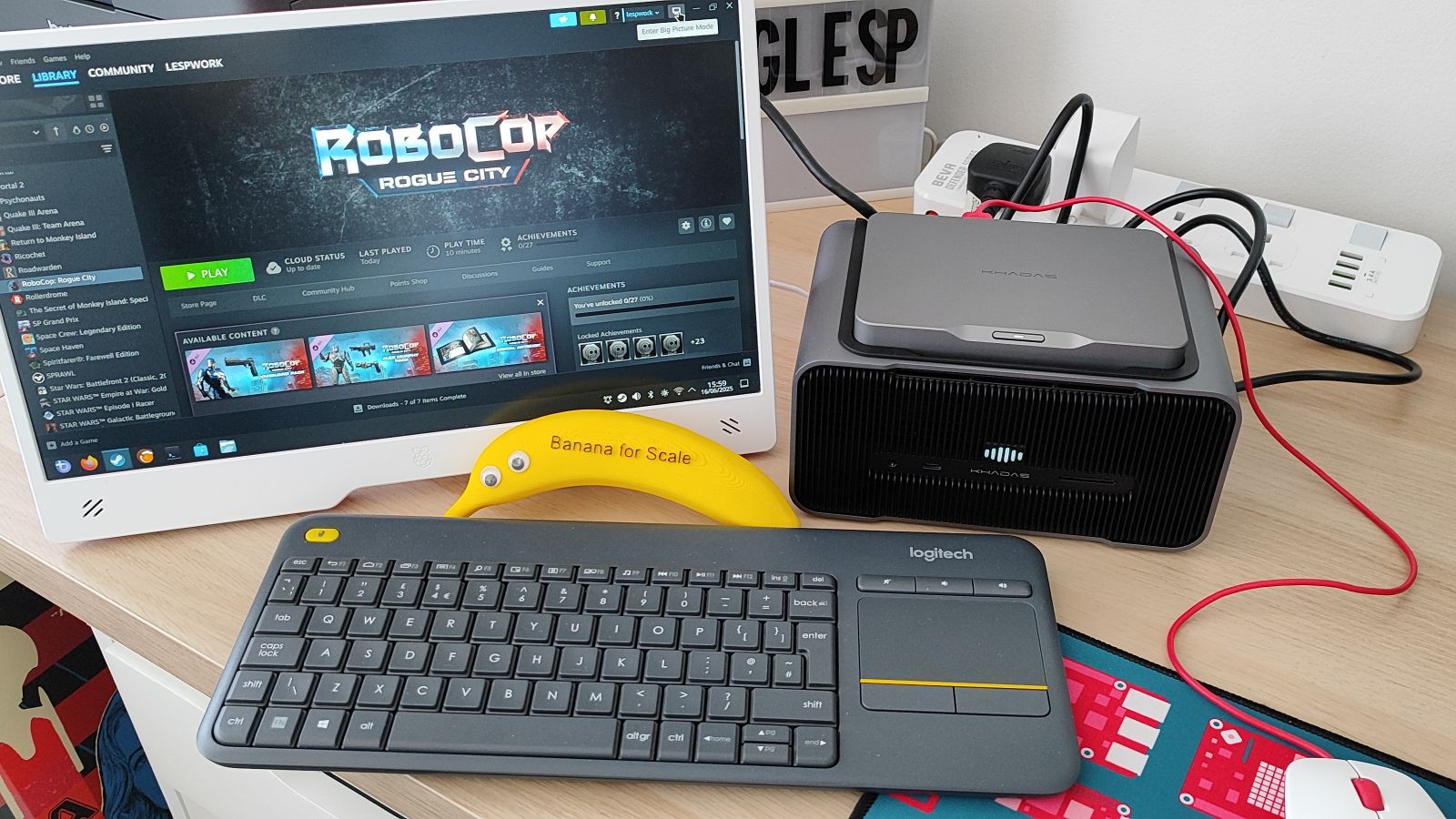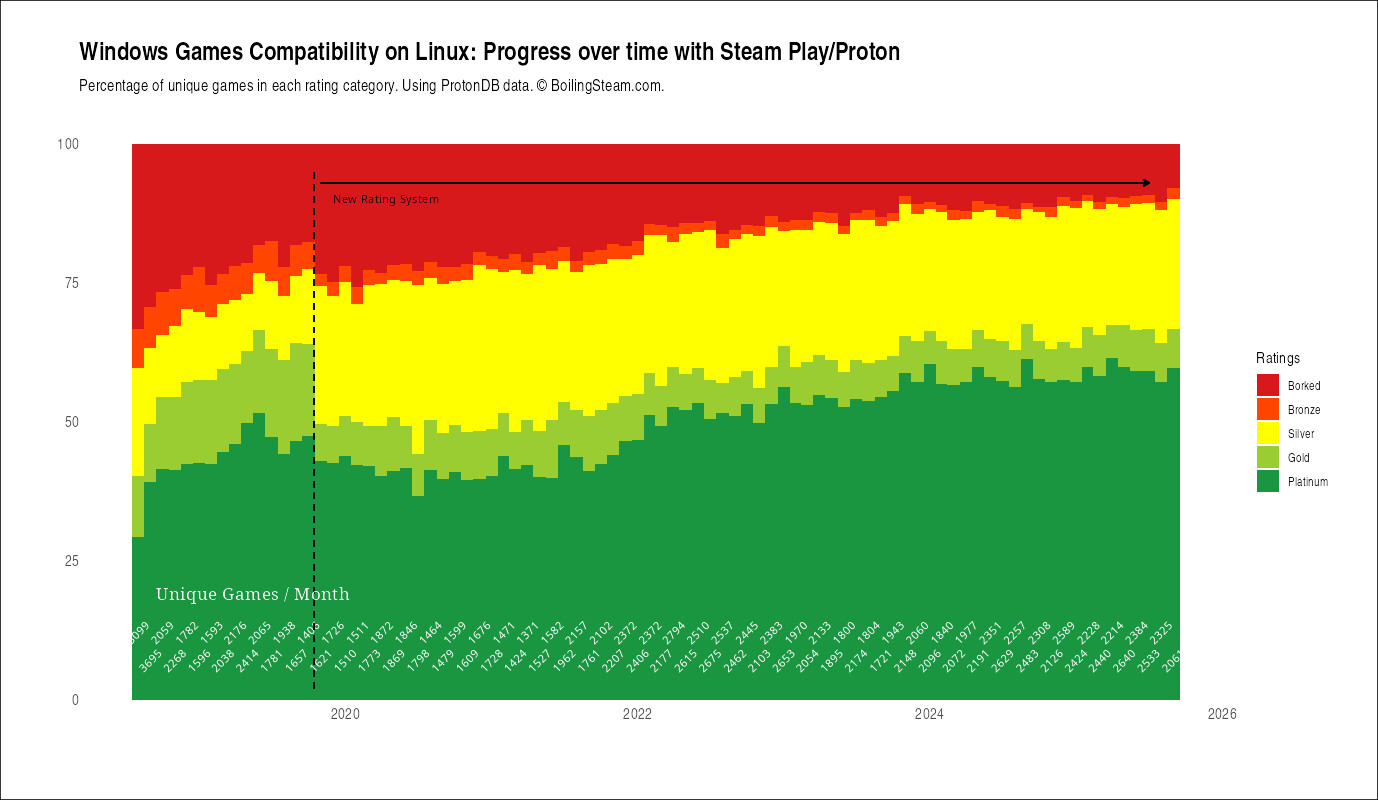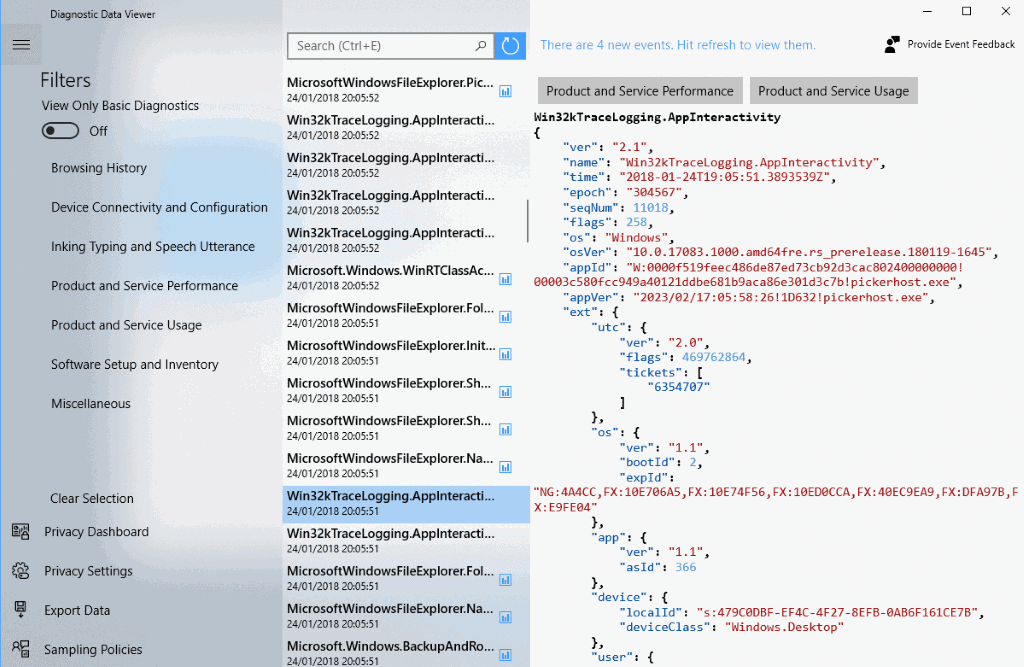Linux gaming has quietly reached a new inflection point. A recent Boiling Steam summary of crowd-sourced ProtonDB compatibility reports shows that about 89.7% of Windows titles now at least launch on Linux systems. The numbers are spread into a few categories. Games rated "Platinum," meaning they install, run, and save on Linux without requiring user intervention, made up 42% of new releases tracked in October, up from 29% the previous year. That surge has outpaced parts of the certification ecosystem, with Valve's Steam Deck verification pipeline struggling to keep up; roughly one in five titles Deck reviewers call "Playable" are already Platinum on desktop distributions.
At the same time the share of titles that refuse to launch, the so-called "Borked" cohort, has fallen to roughly 3.8%, a group that still includes deliberate blocks such as March of Giants, which explicitly detects Wine and Proton and exits to the desktop. The most persistent obstacles are not obscure indies but anti-cheat middleware and contractual choices. Easy Anti-Cheat, BattlEye, and similar systems remain the primary gatekeepers for online multiplayer, and enabling them on Linux is often more a negotiation than a mere technical flip of a switch. When a studio approves Steam Deck support, desktop Linux compatibility frequently follows within a single build cycle, suggesting the code paths are already unified and only sign-off is pending.







